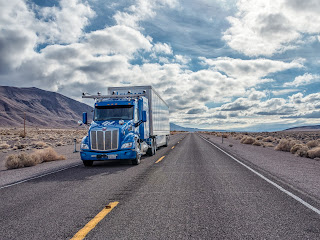Undoubtably yes. Below is my screen time for this current week. Note that it is exam week and I have had 4 final papers and presentations to submit, so I was using my phone a bit less. Actually about 14% less, thanks to my iPhone that tracks my every move and click of a button. My average screen time for these past fours days is 4 hours and 8 minutes.
My iPhone is no doubt the most important technology in my life. It allows me to communicate no matter where I am, with whoever I want, and through any medium I choose. But what would my life be like if I had an old flip phone like my parents and older siblings used? I would certainly be less distracted thats for sure. So how could I repurpose those 4 hours and 8 minutes I spend on my phone a day?
I could master photoshop. I could read a book. I could start my own business. I could do more cardio. I could go to an amusement park. I could go for a walk. I could reach out to an old friend. I could learn how to cook. I could train for a marathon. I could apply for jobs. I could even create my own version of 'Battle Shots' like my girlfriend has wanted. I could drive to Raleigh or Charlotte to visit my brother or sister. The point is, I could better myself if I didn't spend so much time on my phone. So why don't I just return my iPhone and get one of those old flip phones?
Well, society tells me not to. If you don't have an iPhone and are put into a group chat and the color is green the first reaction is "ughh who doesn't have an iPhone?" If I had a flip phone I would be an inconvenience to the rest of society. If I were conducting business and had to access a link or document on the spot, I wouldn't be able to do so with a flip phone. I wouldn't be able to keep in touch with my friends as easily because I wouldn't be on social media. I also wouldn't be able to FaceTime my loved ones.
Technology is great, especially the iPhone. It is the single most diverse piece of technology out there. Like the prompt said, you can do anything or access an abundance of information from the touch of a button. But because it is so easy to use, it has taken over my life. Apple and other tech companies have conditioned us to "need" a SmartPhone. Now that we are able to do all of the things the iPhone is capable of, what is my life going to be like without them?
The Mad World Remix video describes how I feel about technology perfectly. I hate that I feel awkward walking past a stranger on the street and fight the urge to pull out my phone just so I don't have to make eye contact with them. The thought that I actually do that to people is embarrassing.
Another major negative impact that I do not face personally, but feel the effects of through others is the image that society requires. I hate that my mom, sister, sister-in-law, girlfriend, and female friends feel insecure becasue society tells them they should look a certain way. I personally hate plastic surgery. First because it looks awful or blatantly obvious 99% of the time. But second because it means that the person who got the surgery felt so insecure about how they look that they spent their hard earned money to change who they are. I do not believe a person's appearance defines who they are. Sure the type of clothing I wear suggests that I skateboard, vote for liberal candidates, and smoke weed. But that is just an assumption, not all of that is true.
While the song is about social justice, treating people with respect, and bettering oneself, J.Cole's "Change" off of his 2016 Platinum album 4 Your Eyez Only describes how I feel perfectly.
"I know you're desperate for a change let the pen glide / But the only real change comes from inside / But the only real change comes from inside/ But the only real change comes from- /"
Cole is saying that people think that change comes from external sources- like something you receive, buy for yourself, or do to your body. But change comes from meditation and understanding a person's own feelings, then acting on their new understanding. I know for a fact that technology and social media in specific has made everyone insecure and anxious. And I don't blame them. At any moment a photo out of context could be taken of you and a story that doesn't represent who you truly are could ruin your life. People are one click away from making a judgement about your entire life, and who is to stop them. It is over a screen and not face-to-cafe confrontation. It is much easier to be rude and disrespectful.
I've talked a lot about the negatives of technology, but haven't even scratched the surface. There is no denying that there are more positives to technology than negatives, but I do feel that our relationship with technology has caused us to lose touch with our own humanity. We are social beings. We should be having more face-to-face interactions. I should not overthink myself into a panic because I could not decipher the tone of your "Okay" text message.

















